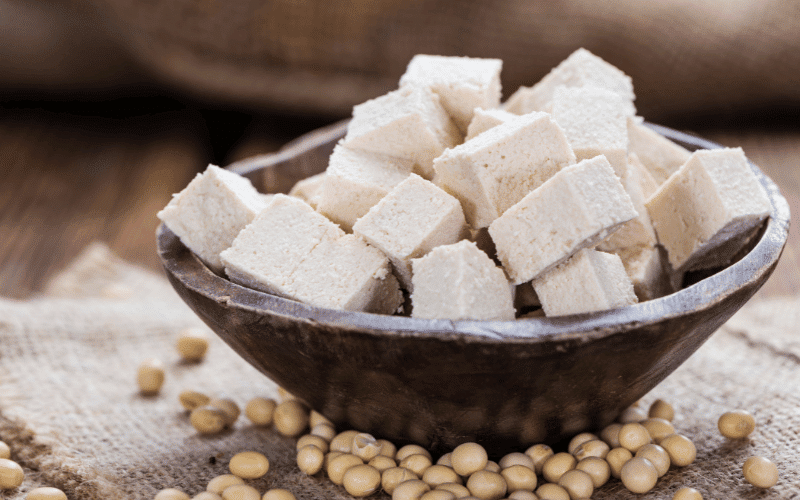Food 5. Terrific Tofu: A Heart-Smart Protein Source

When it comes to protein sources that are good for your heart, tofu is an excellent choice, particularly for individuals with atrial fibrillation. Tofu, which is made from soybeans, is not only a high-quality protein source but also brimming with heart-friendly nutrients, making it an integral part of an AFIB diet.
The key to tofu’s heart health benefits lies in its isoflavone content. Isoflavones are a type of phytoestrogen—a plant compound that mimics the action of the hormone estrogen. Research has shown that isoflavones can help reduce bad LDL cholesterol levels, thus minimizing the risk of atherosclerosis or hardening of the arteries, a precursor to heart disease.
Isoflavones also possess antioxidant properties that help fight inflammation in the body. Chronic inflammation is linked to various diseases, including heart disease. By counteracting inflammation, the isoflavones in tofu may help lower the risk of heart conditions, including arrhythmias like AFIB.
Tofu is also low in saturated fats, unlike many animal proteins. High intake of saturated fats can increase cholesterol levels and contribute to heart disease. By choosing tofu as a protein source, you’re opting for a heart-smart choice that helps keep your cholesterol levels in check.
Apart from the isoflavones and its low-fat content, tofu also offers a good dose of magnesium—a mineral that aids in maintaining a regular heart rhythm. Magnesium works in conjunction with potassium and calcium to support proper muscle contraction, including the heart muscles. With sufficient magnesium intake, you can potentially prevent irregular heart rhythms, a critical factor in managing AFIB.
Incorporating tofu into your diet can be easy and versatile. It can be grilled, stir-fried, baked, or even blended into smoothies. Its mild flavor makes it a great addition to a variety of dishes, from salads and stir-fries to soups and stews. However, it’s crucial to opt for non-GMO and organic tofu whenever possible to avoid potential harmful substances.
By switching up your protein sources and including tofu in your meal rotation, you’re not just adding variety to your diet. You’re also making a heart-healthy choice that supports the management of AFIB. From its isoflavone content to its high-quality protein and magnesium, tofu is a nutrient-packed food that’s worthy of the spotlight in any heart-healthy diet.